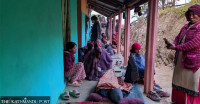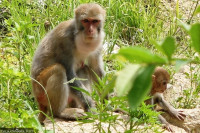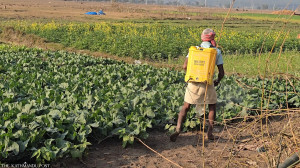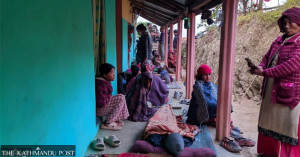Koshi Province
Wildlife menace forces Taplejung farmers to abandon ancestral villages
Relentless raids on crops by simians and black bears are making livelihoods increasingly impossible in mountain villages.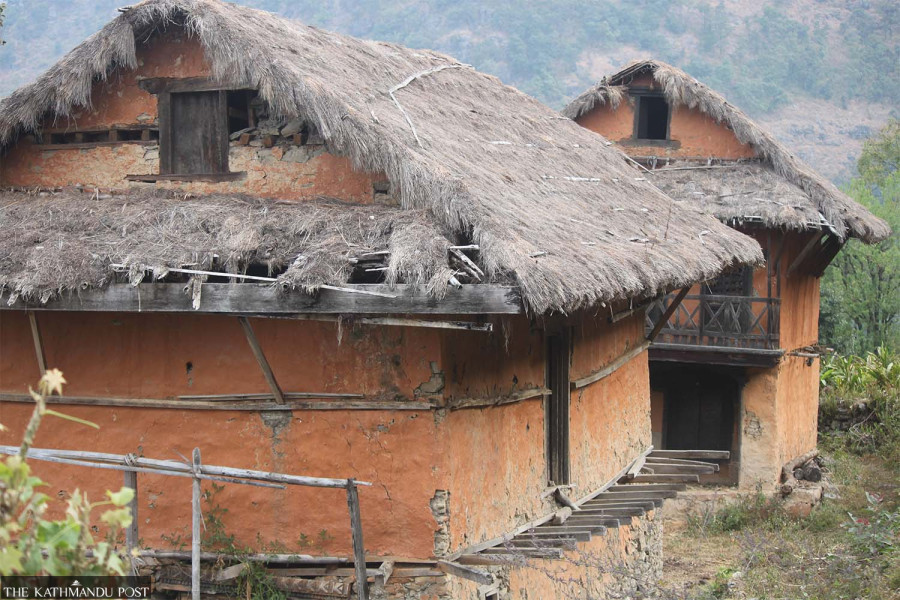
Ananda Gautam
For years, Geeta Prasad Puri of ward 3 in Phungling Municipality tried every possible way to protect his crops in his ancestral village. He grew seasonal and off-season vegetables, built a makeshift shed on his farmland to guard against wild animals, and even experimented with alternative crops. But nothing worked. Finally, defeated by the relentless crop raids by monkeys and Himalayan black bears, he is mulling leaving the ancestral village for good.
“Like my neighbours, I am thinking of moving to Tarai or someplace else,” said Puri with conspicuous frustration. “I am compelled to leave my ancestral village due to the terror of wild animals,” he lamented.
Chaitanya Prasad Ghimire, a resident of ward 8 in Bhedabari in Phungling Municipality, faces the same dilemma. Initially, he replaced food crops with fruits like litchi, mango, and jackfruit, hoping the monkeys would leave them alone. When that failed, he planted bamboo and lapsi (hog plum) trees, only to watch monkeys break the saplings before they could grow. “Even bamboo shoots don’t survive here,” complained Ghimire.
The farmers have alternatives to leave their farmland fallow or migrate to other places due to menace of wild animals—mainly the rhesus macaques and gray langurs—in various settlements of Taplejung.
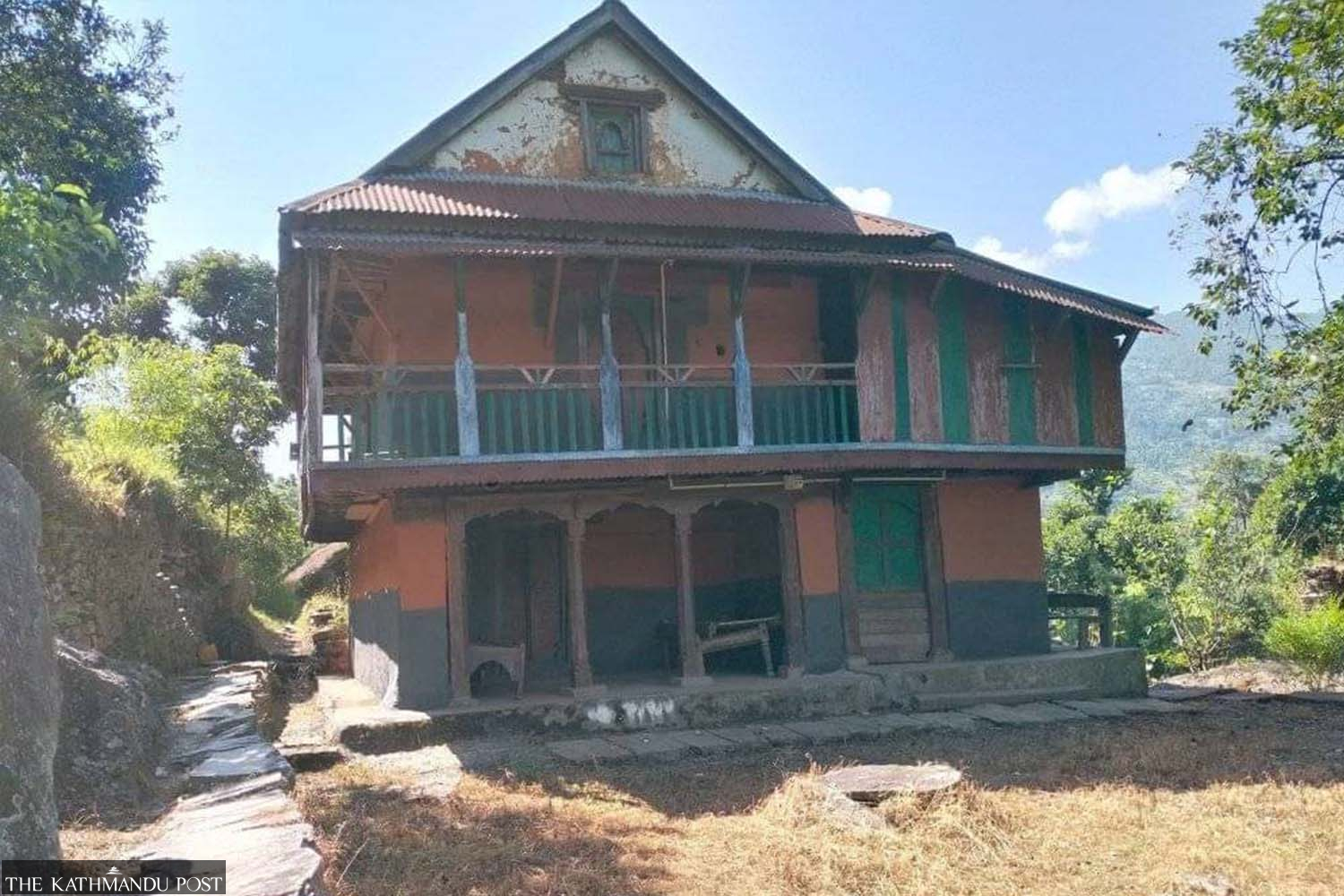
As per the data available at Phungling Municipality, 245 to 330 families leave their hill settlements in the municipality each year, mainly from villages like Bhedabari, Saptel, and Agedim. Most of them cite crop losses to monkeys and bears as the final push factor. “Those who come to town for business stay, but farming families are leaving,” said Mohan Neupane, the spokesperson of Phungling Municipality.
For people like Mingma Sherpa of Meringden Rural Municipality, who moved to ward 8 of Phungling Municipality in search of better opportunities, life has been reduced to a daily battle with wild animals. His routine now includes guarding crops from dawn to dusk, eating meals in the fields, and returning home only at night.
“If you miss even a single day, the crops are gone,” said Sherpa, a sharecropper who is cultivating land belonging to ward 8 of Purna Bahadur Sunuwar of Phungling. “I was satisfied with my neighbours, relatives, and landlord, and living close to the market was convenient. But the terror of monkeys and bears became unbearable. It is hard to live here anymore.”
School children, too, are growing up learning to chase monkeys rather than focus on studies. “I carry a catapult every morning and evening to scare monkeys away,” said Lakpa Tenzi Sherpa, a seventh grader at Mewaraja Basic School. “Our holidays are spent guarding crops, not playing or doing homeworks.”
Municipal officials admit the monkey menace has become unmanageable. Large troops descend on fields during the day, devouring ripe crops and destroying the rest. Bears, though fewer in number, add to the chaos by raiding maize and millet fields at night.
Amir Maden, mayor of Phungling Municipality, said he has traveled widely in search of monkey-repelling devices, even meeting innovator Mahabir Pun for suggestions. “Some devices can work, but batteries fail in the cold hills,” said Maden. This year, the municipality has set aside a small budget for relief programmes to support affected farmers, though officials admit it is far from enough.
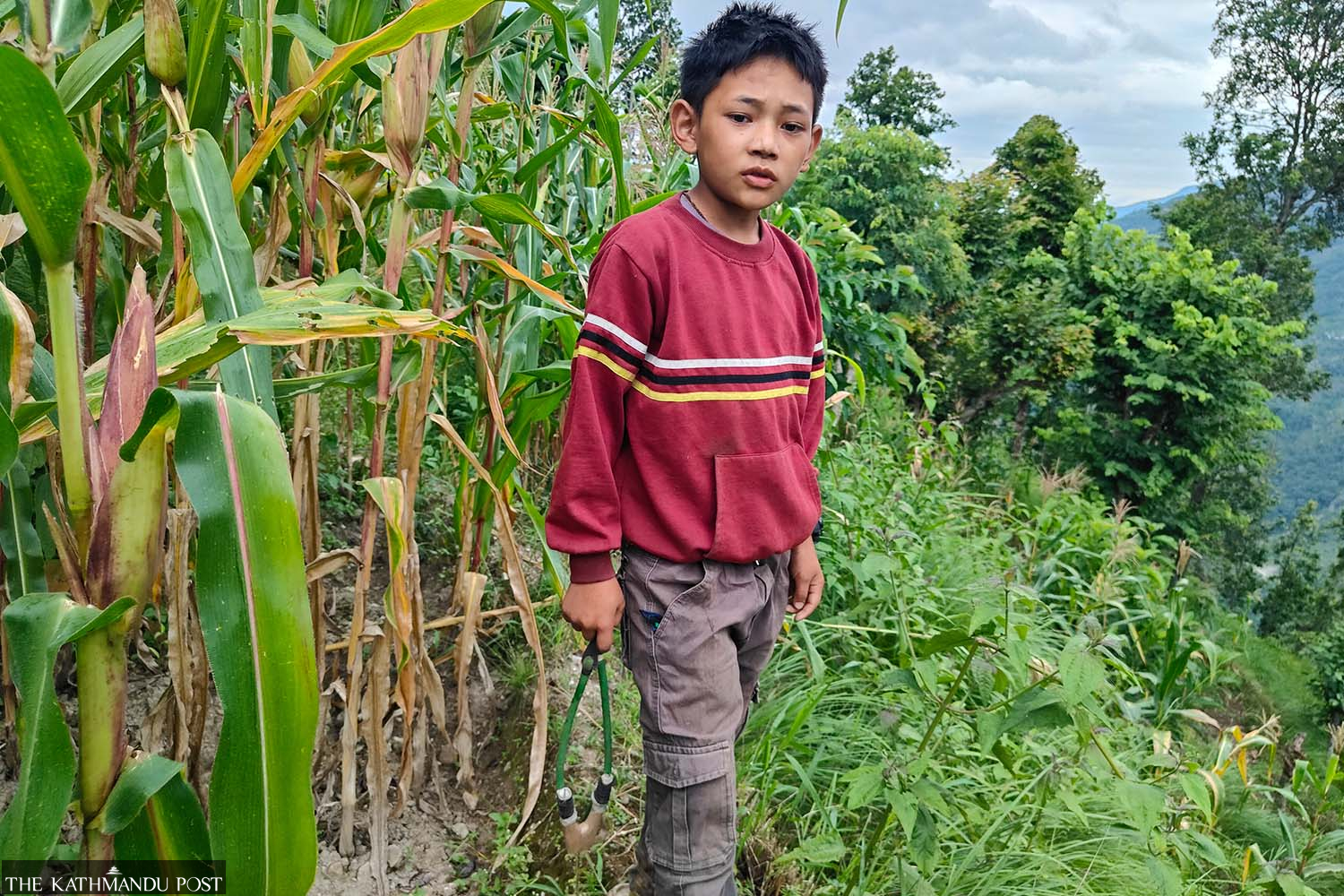
Kshitij Sunuwar, chief of Phungling-8, said controlling monkey menace and providing compensation are beyond the capacity of the ward and municipal office. “The municipality has requested provincial and federal support for both crop protection and compensation. We are even discussing hiring guards during the harvest season,” he said.
Officials from the Ministry of Agriculture in Koshi Province acknowledge receiving repeated complaints from the farmers in Taplejung. “The issue comes up in every local meeting. But solutions require significant resources,” said an official preferring anonymity.
Data from the 2021 national census show Taplejung’s population has dropped to 120,000—a loss of nearly 6,000 families since 2011. Locals and officials agree that human-wildlife conflict is now a leading cause of outmigration, alongside limited economic opportunities.
“Earlier, people left the villages seeking jobs or education. Now, wild animals are emptying entire villages,” said Krishna Basnet, Taplejung chief of the National Farmers Group Federation.
Farmlands in wards 1, 2, 3, 7, and 8, of Phungling lie abandoned, gradually turning into forests. Ironically, this allows monkey populations to grow unchecked, worsening the cycle. “The more people leave, the more space wild animals get,” said Kshitij Sunuwar.
Taplejung, a mountain district of Koshi Province, has one municipality and eight rural municipalities, most of which report similar issues. Neighbouring districts have also raised alarms about growing human-wildlife conflict as forests regenerate and rural populations shrink.
In the meantime, farmers like Puri and Ghimire continue guarding their fields day and night, wondering how much longer they can hold out. “We are not against wildlife. But if this continues, there will be no farmers left in the hills,” said Puri.




 10.12°C Kathmandu
10.12°C Kathmandu

